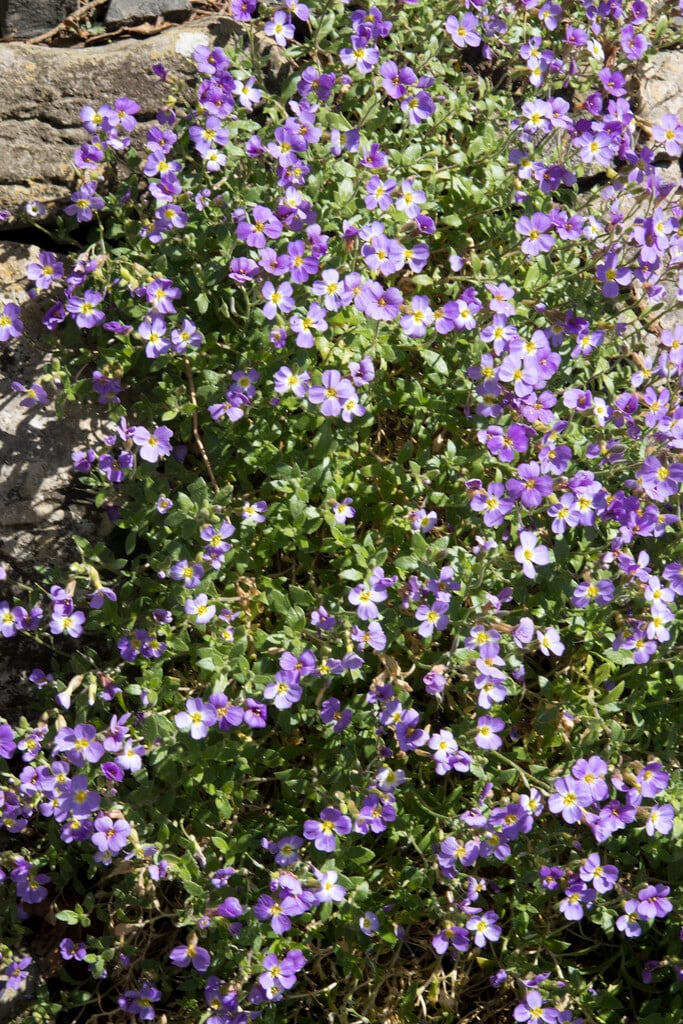Aubrieta pinardii
A compact, tufted evergreen perennial, about 10cm tall, forming a mound of small, greyish, mid-green leaves, and producing pale purplish-pink 4-petalled flowers with yellow centres, from spring into early summer; endemic to mountains in Turkey
Size
Ultimate height
Up to 10cmTime to ultimate height
2–5 yearsUltimate spread
0.1–0.5 metresGrowing conditions
Moisture
Well–drainedpH
Alkaline, NeutralColour & scent
| Stem | Flower | Foliage | Fruit | |
| Spring | Purple Pink | Grey Silver Green | ||
|---|---|---|---|---|
| Summer | Purple Pink | Grey Silver Green | ||
| Autumn | Grey Silver Green | |||
| Winter | Grey Silver Green |
Position
- Full sun
Aspect
South–facing or West–facing
Exposure
Exposed or Sheltered Hardiness
H6Botanical details
- Family
- Brassicaceae
- Native to GB / Ireland
- No
- Foliage
- Evergreen
- Habit
- Tufted
- Genus
Aubrieta are mat-forming evergreen perennials with small leaves and short racemes of 4-petalled flowers in shades of pink and purple in spring
- Name status
Unresolved
- Plant range
- C Turkey
How to grow
Cultivation
Grow in sharply-drained, preferably neutral to alkaline soil in full sun. An ideal plant for dry areas such as rock gardens and sloping sites; native to rocky mountain slopes in Turkey and found in rubble under rock cliffs
Propagation
Propagate by softwood cuttings in early summer, or semi-hardwood cuttings in midsummer. Propagate by seed in spring or autumn, though seed-grown plants may vary
Suggested planting locations and garden types
- Cottage and informal garden
- Mediterranean climate plants
- Patio and container plants
- Rock garden
- Wildlife gardens
- Banks and slopes
- Garden edging
Pruning
Lightly trim after flowering to maintain shape
Pests
May be susceptible to aphids, leaf and bud eelworms and flea beetles
Diseases
May be susceptible to white blister and downy mildew
Get involved
The RHS is the UK’s gardening charity, helping people and plants to grow - nurturing a healthier, happier world, one person and one plant at a time.
